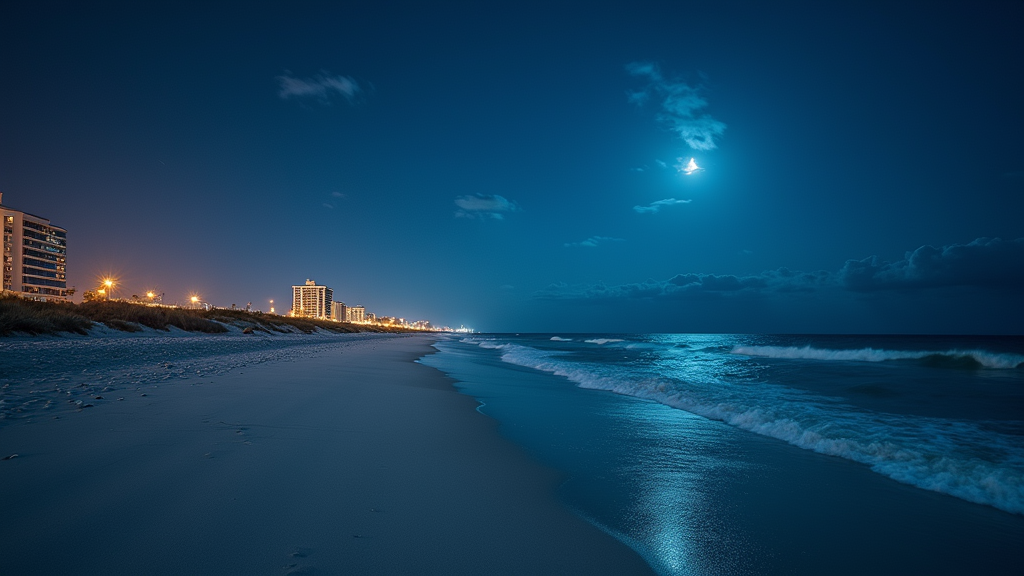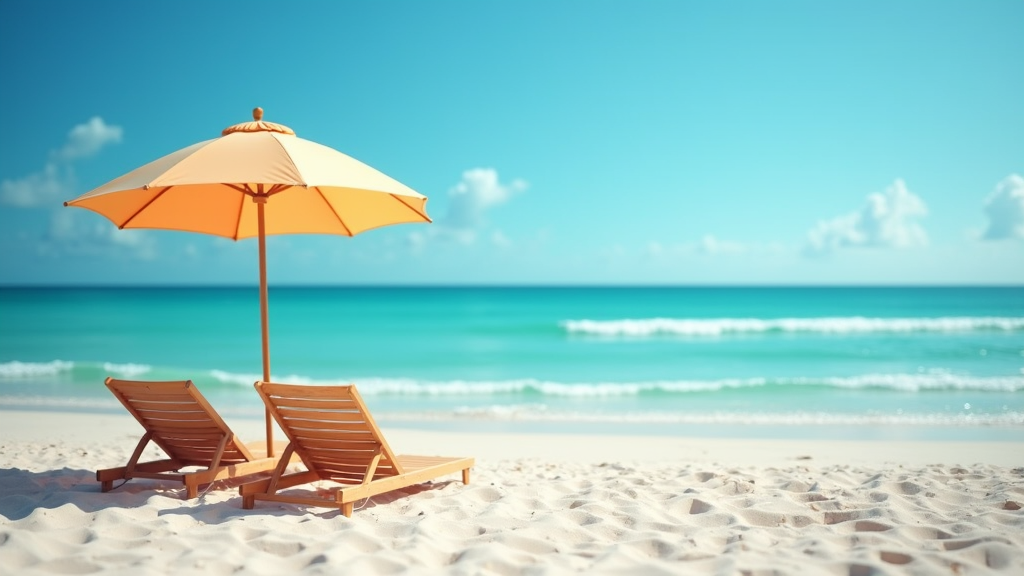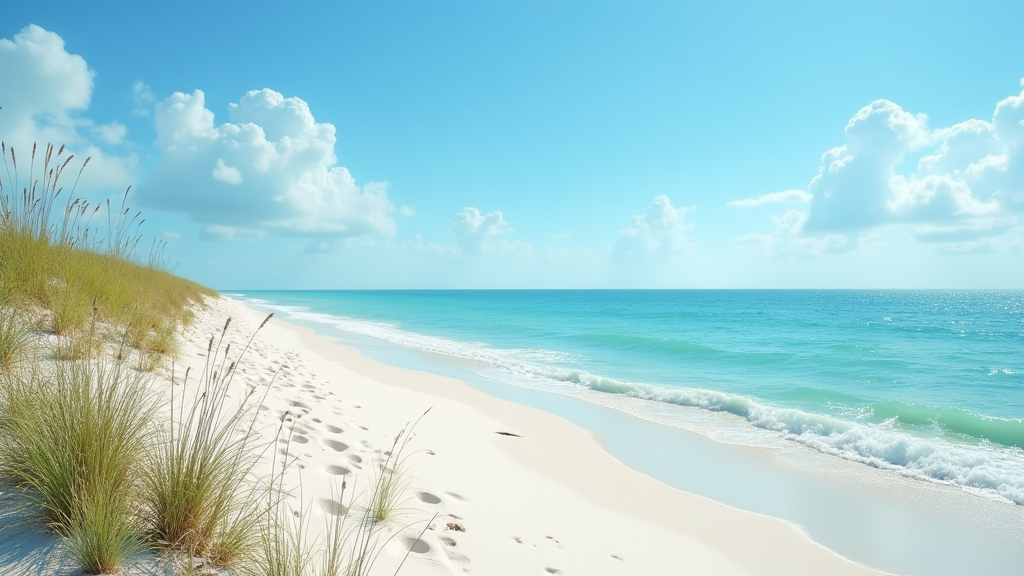Table of Contents
- Exploring Florida Beaches at Night: A Comprehensive Outline
- Florida Beaches at Night Outline: Understanding the Basics
- Detailed Guide: Exploring Florida Beaches at Night
- Florida Beaches at Night Outline: Alternative Activities
- Florida Beaches at Night Outline: Prioritizing Your Safety
- Understanding Potential Hazards on Florida Beaches at Night
- Environmental Dangers on Florida Beaches at Night
- Human-Related Risks on Florida Beaches at Night
- Essential Safety Precautions for Florida Beaches at Night
- General Safety Guidelines for Nighttime Beach Visits
- Swimming Safety Measures for Florida Beaches at Night
- Security Tips for Florida Beaches at Night
- Florida Beaches at Night Outline: Understanding Legalities
- Florida Beaches at Night Outline: Concluding Thoughts
Exploring Florida Beaches at Night: A Comprehensive Outline
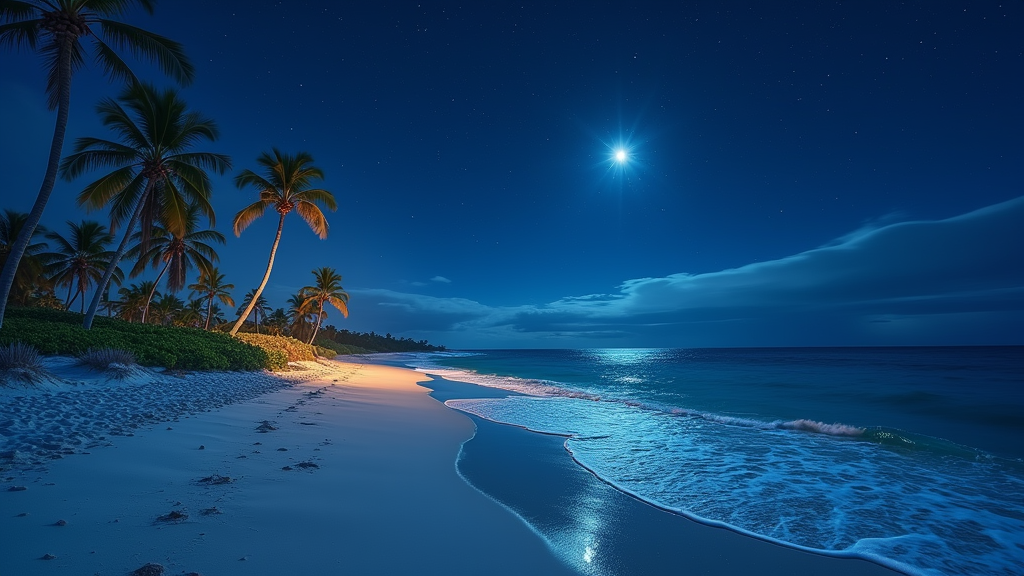
Why Nighttime Visits to Florida Beaches Matter
Florida’s beaches are renowned for their daytime beauty, but experiencing them at night offers a unique perspective. However, nighttime visits come with specific regulations and potential risks. Understanding these aspects is essential for ensuring a safe and enjoyable experience. Regulations regarding beach access at night can vary significantly from one location to another. Knowing these rules is vital for avoiding legal issues and ensuring your personal safety.
Florida Beach Nighttime Access: A Historical View
Historically, most beaches in Florida were generally open from sunrise to sunset. In recent years, there’s been an increased focus on safety and environmental protection, leading to the implementation of curfews and restrictions on nighttime access. Despite these restrictions, there’s a growing interest in nighttime activities such as viewing bioluminescence, stargazing, and simply enjoying the tranquility of the ocean under the stars.
Key Takeaways: Navigating Florida Beaches at Night
This guide will provide you with a comprehensive understanding of beach access rules, essential safety precautions, and a range of permitted activities for Florida beaches at night. You’ll learn how to find specific regulations for individual beaches, plan a safe and memorable nighttime visit, and discover alternative activities to enjoy responsibly.
Florida Beaches at Night Outline: Understanding the Basics
Fundamental Concepts: Florida Beach Night Rules
Exploring Florida beaches at night requires understanding some fundamental concepts to ensure a safe and legal experience. Key definitions include:
- Curfew: A specified time after which access to the beach may be restricted or prohibited.
- Designated area: Specific sections of the beach where certain activities, like bonfires, are permitted.
- Sea Turtle Nesting Season: The period from March 1 to October 31, which brings specific lighting restrictions to protect nesting sea turtles and hatchlings.
The core principles to remember are that rules vary significantly by location, safety is always paramount, and it’s essential to respect and adhere to all local regulations.
Essential Components: Nighttime Beach Regulations Florida
Several essential components contribute to a successful and responsible nighttime visit to Florida beaches. These include:
- Knowledge of local beach regulations, which can vary significantly from one beach to another.
- Having appropriate safety equipment, such as a reliable flashlight and a basic first-aid kit.
- Maintaining a high level of awareness regarding potential hazards, like uneven terrain, wildlife, and changing tides.
Key features to consider include:
- Primary aspects: Beach access hours, permitted activities (e.g., fishing, bonfires), and specific safety guidelines.
- Secondary aspects: The availability of amenities like restrooms and parking, proximity to emergency services, and the potential for encountering wildlife.
It’s also important to be aware of variations in regulations due to seasonal changes (especially concerning sea turtle nesting season), special events that might lead to temporary closures, and differences in how strictly rules are enforced at different locations.
Detailed Guide: Exploring Florida Beaches at Night
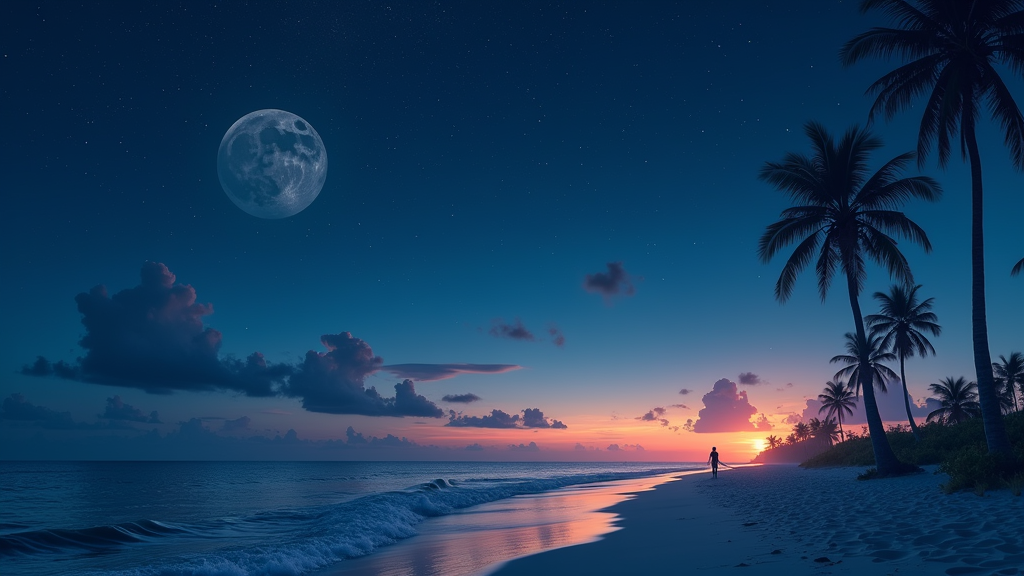
**Key Takeaway:** Maximize your nighttime Florida beach experience by prioritizing safety and respecting the environment. Always check local regulations, especially regarding sea turtle nesting season, and use a red-light flashlight to protect wildlife while enhancing your night vision.
Essential Preparation for Nighttime Beach Visits
Before venturing onto Florida’s beaches at night, thorough preparation is crucial for safety and enjoyment. This includes gathering the right equipment, understanding local regulations, and considering potential environmental factors.
- Required materials:
- Initial setup:
- Important considerations:
- Flashlight (minimum 100 lumens) for navigation.
- First-aid kit (bandages, antiseptic wipes) for minor injuries.
- Insect repellent to ward off mosquitoes and other bugs.
- Phone/camera for capturing memories and in case of emergencies.
- Research specific beach regulations via the official website or local authorities to avoid violations.
- Check the weather forecast (wind speed, tide levels) to anticipate potential hazards.
- Inform someone of your plans and expected return time for added safety.
- Sea Turtle Nesting Season (March 1 to October 31): Turn off or shield any lights visible from the beach from May 1 to October 31 to protect nesting turtles and hatchlings.
- Curfew hours: Check for specific curfews, as some beaches, like Miami Beach, may have curfews from midnight to 6 am.
- Parking availability and fees: Plan your arrival accordingly to secure parking and avoid unexpected costs.
Step-by-Step Guide for Florida Beach Night Outings
Following a clear, step-by-step process ensures a safe and enjoyable experience when visiting Florida beaches at night. This includes planning, preparation, and responsible behavior during your visit.
- Clear instructions:
- Best practices:
- Common mistakes to avoid:
- Travel in groups for enhanced safety and security.
- Stay aware of your surroundings and be mindful of potential hazards.
- Avoid swimming alone at night due to increased risks.
- Do not disturb the dunes, as they play a crucial role in protecting the coastline.
- Assuming all beaches have the same rules and regulations; always verify specific guidelines.
- Ignoring warning signs, which are often in place to protect visitors from potential dangers.
- Consuming alcohol excessively, which can impair judgment and increase the risk of accidents.
- Trespassing on private property, which can result in legal consequences.
Advanced Techniques for Enhanced Night Beach Experiences
For experienced nighttime beachgoers, advanced techniques can elevate the experience and enhance safety. These include expert tips, optimization methods, and troubleshooting strategies.
- Expert tips:
- Optimization methods:
- Troubleshooting:
- Use a red-light flashlight to preserve your night vision and minimize disturbance to wildlife.
- Download a stargazing app to identify constellations and learn about the night sky.
- Learn basic first aid and CPR to respond effectively to emergencies.
- Plan your visit around the full moon for increased visibility and a more magical atmosphere.
- Check tide charts for optimal beach walking conditions and avoid being caught by high tide.
- Join a guided nighttime tour for expert insights, safety tips, and a deeper understanding of the local ecosystem.
- If you encounter a sea turtle nest, maintain a safe distance (at least 10 feet) and avoid using flash photography to protect the eggs and hatchlings.
- If you get lost, stay calm and use your phone’s GPS to retrace your steps or call for assistance.
- If you witness suspicious activity, contact local authorities immediately to ensure the safety of yourself and others.
Florida Beaches at Night Outline: Alternative Activities
Exploring Local Nightlife Near Florida Beaches
Beyond the sandy shores, many Florida beach towns offer vibrant nightlife scenes. You can find a variety of options, from laid-back bars and restaurants to live music venues that keep the energy going late into the night.
- Daytona Beach: Numerous hotels and restaurants are located near the beach, offering extended hours and lively atmospheres.
- Clearwater Beach: Pier 60 Park remains open until midnight, and the surrounding area boasts a diverse selection of dining establishments.
- Miami Beach: Known for its high-energy clubs and bars, Miami Beach provides a wide range of late-night entertainment, complemented by diverse accommodation choices.
Moonlit Strolls and Stargazing on Florida Beaches
For a more tranquil experience, consider a moonlit stroll or stargazing session on the beach. The gentle sounds of the waves and the vastness of the night sky can be incredibly relaxing and romantic. It’s also a great opportunity for some informal astronomy education.
To maximize your stargazing experience, seek out beaches with minimal light pollution. Consult light pollution maps online to identify the darkest areas near you.
Enhance your experience by bringing a blanket to lie on, a telescope for closer views (optional), and a stargazing app to help you identify constellations and planets.
Bonfires on Florida Beaches: Regulations and Safety
If you’re interested in having a bonfire on the beach, it’s crucial to check local regulations regarding bonfires and fire pits. Many areas have specific rules in place to protect the environment and ensure public safety.
Safety is paramount when building a bonfire. Always obtain any necessary permits beforehand and use designated fire pits where available. Maintain a safe distance from the fire, and keep a fire extinguisher or water source readily accessible.
For example, Stuart Beach and Jensen Beach permit bonfires in designated areas between 5 pm and 11 pm, subject to local authority permissions.
Florida Beaches at Night Outline: Prioritizing Your Safety

Understanding Potential Hazards on Florida Beaches at Night
Exploring Florida beaches at night can be an enchanting experience, but it’s essential to be aware of potential hazards. Being informed allows you to take the necessary precautions for a safe and enjoyable visit.
Environmental Dangers on Florida Beaches at Night
The natural environment presents several risks. Rip currents can be particularly dangerous, especially for inexperienced swimmers. The terrain can be uneven, with hidden holes or debris. Marine life, including sharks and jellyfish, may be more active at night or during dawn and dusk. Remember that sharks are most active during these twilight hours. Weather conditions can also change rapidly, with sudden storms rolling in unexpectedly.
- Rip currents
- Uneven terrain
- Marine life (sharks, jellyfish)
- Sudden weather changes
Human-Related Risks on Florida Beaches at Night
Beyond environmental factors, be mindful of human-related risks. Crime can be a concern, especially in less populated areas. Lifeguards are typically not on duty at night, increasing the risk of accidents. The presence of intoxicated individuals can also create unpredictable situations.
- Potential for crime
- Absence of lifeguards
- Presence of intoxicated individuals
Essential Safety Precautions for Florida Beaches at Night
Taking proactive safety measures is crucial for a secure visit to Florida beaches at night. These precautions can significantly reduce the risk of accidents or incidents.
General Safety Guidelines for Nighttime Beach Visits
Always travel in groups, as there is safety in numbers. Maintain constant awareness of your surroundings, paying attention to any unusual activity. Avoid swimming alone at night under any circumstances. Inform someone of your plans, including your destination and expected return time.
- Travel in groups for safety
- Stay aware of your surroundings
- Avoid swimming alone
- Inform someone of your plans
Swimming Safety Measures for Florida Beaches at Night
If you choose to swim, do so only in designated areas that are known to be safe. Never swim under the influence of alcohol, as it impairs judgment and coordination. Be realistic about your swimming abilities and avoid pushing your limits, especially in the dark.
- Swim in designated areas only
- Avoid alcohol consumption before swimming
- Be aware of your swimming abilities
Security Tips for Florida Beaches at Night
Avoid walking alone in poorly lit areas, as these can be more vulnerable to crime. Keep valuables out of sight to minimize the risk of theft. Report any suspicious activity to the police immediately.
- Avoid poorly lit areas
- Keep valuables out of sight
- Report suspicious behavior to the police
Florida Beaches at Night Outline: Understanding Legalities
Navigating Local Regulations for Florida Beaches at Night
Exploring Florida’s beaches at night can be a magical experience, but it’s crucial to be aware of and respect local regulations. Understanding these rules helps ensure you avoid potential fines, arrests, or other legal issues that could put a damper on your evening. Staying informed is key to a safe and enjoyable visit.
Fortunately, accessing information about beach regulations is relatively straightforward:
- Official Beach Websites: Many beaches have official websites detailing rules, permitted activities, and hours of operation.
- Local Government Websites: City and county websites often provide comprehensive information about local ordinances affecting beach access and activities.
- Contacting Local Authorities: If you have specific questions or need clarification, contacting the local police department or parks and recreation department can provide valuable insights.
Here are a few examples of regulations to be aware of:
- Pompano Beach and Deerfield Beach: Curfews for minors may be in effect, restricting their presence on the beach after certain hours.
- Daytona Beach: Beach driving is permitted in designated areas, but restrictions apply regarding speed limits and vehicle types.
- Miami Beach: Curfews may be implemented to address large gatherings and prevent unruly behavior, particularly during peak seasons.
Understanding Penalties for Violations on Florida Beaches
Ignoring local regulations can lead to various penalties, depending on the nature of the violation. It’s important to be aware of the potential consequences to avoid any unpleasant surprises.
Examples of violations and their associated penalties include:
- Trespassing: Being present on a beach after hours or in a restricted area can be considered trespassing, which is classified as a third-degree misdemeanor in Florida.
- Parking Violations: Parking illegally near the beach can result in fines, which can vary depending on the location and the severity of the infraction.
- Disturbing the Peace: Engaging in disruptive behavior, such as excessive noise or public intoxication, can lead to fines or even arrest.
Sleeping on the beach is also regulated in Florida. Under Florida law, it can be considered a third-degree misdemeanor, punishable by fines. Therefore, if you are planning to spend a long time on the beach, make sure you are not in violation of any local laws.
Florida Beaches at Night Outline: Concluding Thoughts
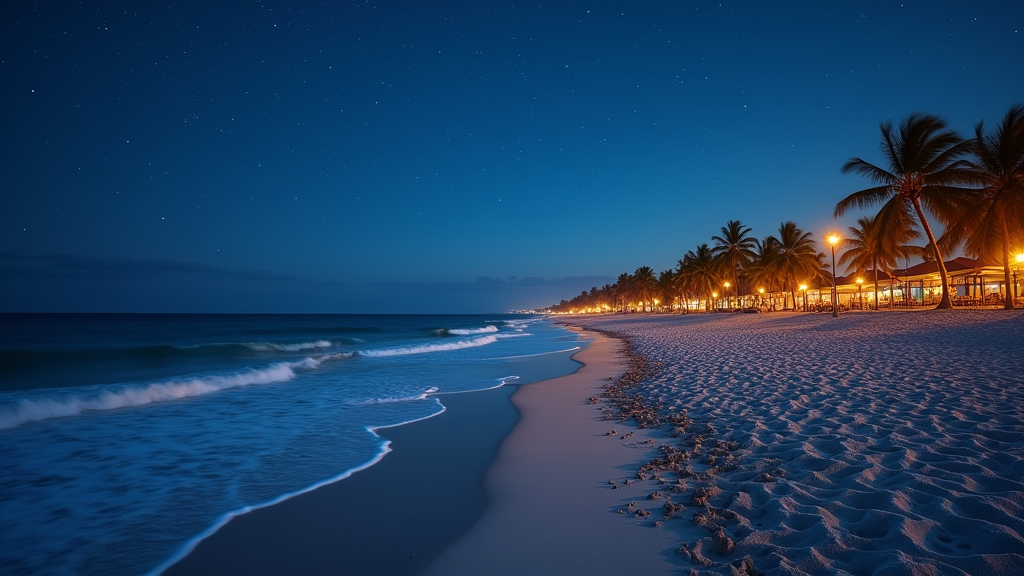
Recap: Planning Your Florida Beach Night Visit
Exploring Florida’s beaches at night offers a unique perspective, but it’s crucial to remember a few key points. Nighttime access varies significantly from beach to beach, so always verify regulations before heading out. Prioritize safety by being aware of your surroundings and never swimming alone. Respect local ordinances to avoid fines or disruptions. And if beach access is restricted, remember that alternative nighttime activities can be just as enjoyable.
Florida Beaches at Night Outline: Final Reminders
Careful planning and preparation are essential for a safe and memorable experience on Florida’s beaches at night. Whether you’re stargazing, taking photos, or simply enjoying the peaceful sounds of the ocean, embrace the unique beauty of these coastal environments. Always be mindful of the environment, leaving no trace behind, and adhere to all applicable laws and regulations.
Share Your Florida Beaches at Night Experiences
Have you explored Florida’s beaches at night? We’d love to hear about your adventures! Share your experiences, tips, and favorite spots in the comments section below. Also, don’t forget to double-check your local beach’s official website for the latest information on nighttime access and regulations before you visit.
